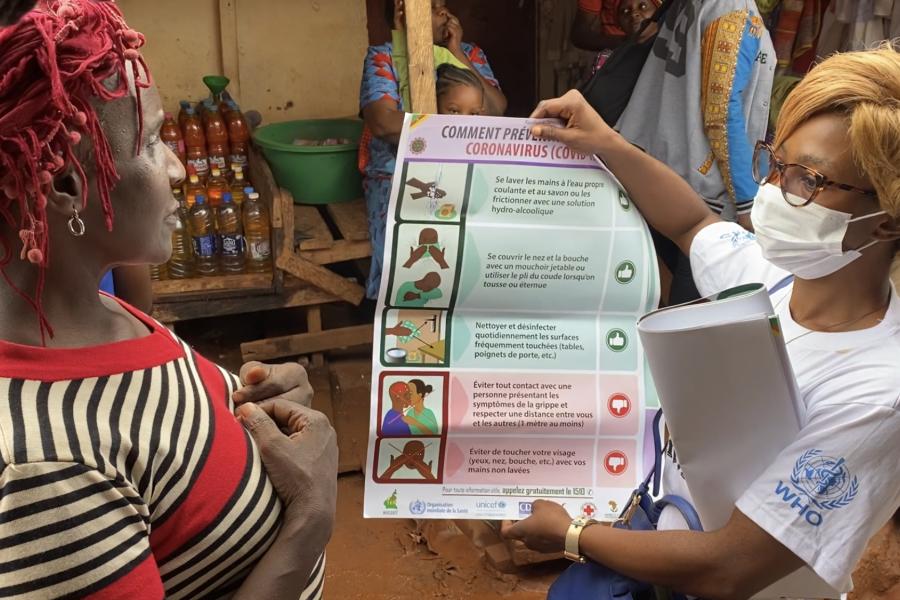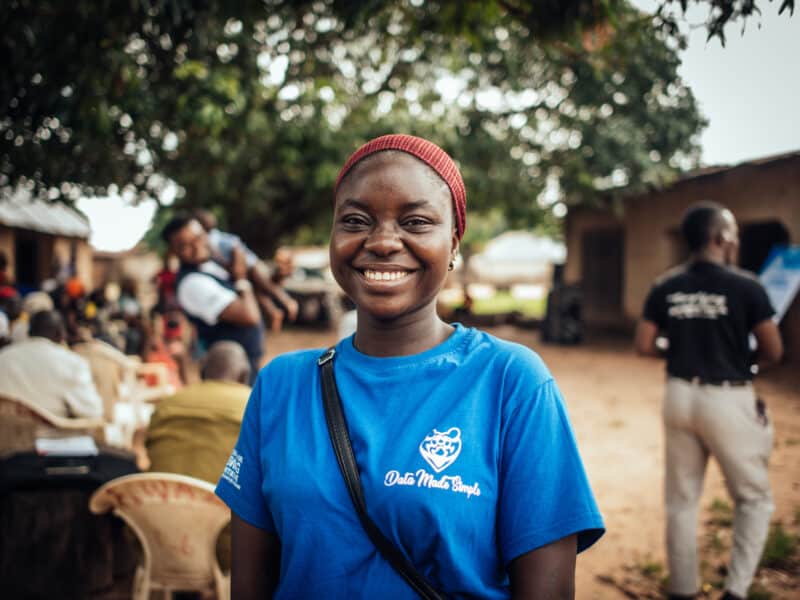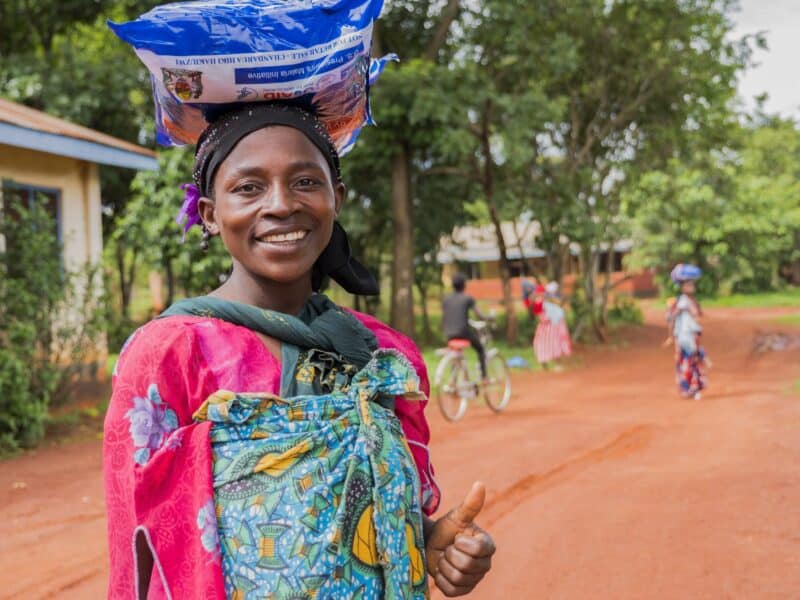While wearing face masks outside the home has become common across Cameroon during the COVID-19 pandemic, few Cameroonians keep a safe distance away when interacting with others, new survey results from the Johns Hopkins Center for Communication Programs suggests.
Meanwhile, several misconceptions about COVID-19 are common. Only about half of respondents know that coronavirus does not die in hot weather and more than half were unaware that there is no drug or treatment for the virus. Correct knowledge about treatments for coronavirus is low. And, of concern, around half of respondents believe that home remedies can cure coronavirus (they cannot).
“While many messages about COVID are getting through, much more work needs to be done to help the people of Cameroon to understand the risks of the virus as well as how they can prevent themselves from becoming sick,” Stella Babalola, PhD, CCP’s director of research and evaluation. “With the correct facts, individuals may reassess the risks of COVID-19 both in terms of perceived susceptibility and perceived severity, which in turn could result in behavioral changes.”
The results from Cameroon are just one set from a series of surveys being conducted by CCP’s Breakthrough ACTION project in countries where it is working to prevent the spread of COVID-19. Since the beginning of the year, more than 24 million people around the world have been sickened and more than 827,000 have died from COVID-19.
CCP hired GeoPoll to conduct a nationally representative telephone survey of 1,200 respondents from across Cameroon in four languages in July 2020. A similar survey is ongoing in South Africa and GeoPoll will also survey people in Ethiopia and Bangladesh about their knowledge, perceptions and preventive behaviors surrounding COVID-19. CCP is also involved in a worldwide survey in conjunction with Facebook, MIT and WHO.
“We will use the data gleaned from the surveys to improve how we communicate messages important to reduce the spread of COVID-19,” says CCP’s Maria-Elena Figueroa, PhD, a senior researcher leading much of the GeoPoll work.
Typically, CCP would interview people in person, but it isn’t possible in a world where health officials are urging people to keep their distance from one another. “They don’t open the door for you now and they shouldn’t,” Figueroa says. “Telephone surveys are a good option.”
CCP plans to conduct a second round of the survey in the coming weeks in Cameroon in order to see if progress is being made. CCP is working in Cameroon to promote and disseminate COVID prevention messages.
Most respondents to the Cameroon survey, nearly nine in 10, had heard or seen information about COVID-19. About half of respondents (46.1 percent) had heard or seen information on how to prevent infection and 42.5 percent had been exposed to information on COVID-19 symptoms. Exposure to these messages varied significantly by location and was highest in the North and Far North regions and lowest in Douala in southwest Cameroon, where just one in four people had heard or seen the messages.
A large majority of respondents reported frequently washing their hands (82.2 percent) and wearing a mask while outside of the house (80.3 percent). But they were not social distancing (only 41.5 said they were), staying at home as much as possible (33.7 percent), sneezing or coughing into their elbows (32.8 percent) and avoiding touching their eyes, noses and mouths (21.7 percent).
“We need to see more messages that emphasize the importance of limiting physical contact in order to interrupt the spread of the virus,” Babalola says. “Fewer than half of respondents knew that avoiding shaking hands or hugging, avoiding groups of 50 or more people and staying home as much as possible could help prevent COVID-19.”
Many of the results varied depending on where respondents live within Cameroon. Avoiding large groups is practiced more frequently in the Northwest (80.6 percent) as compared to the East (16.3 percent).
Efforts to promote social distancing are more likely to be successful if they rely on carefully crafted messages designed to increase people’s knowledge that social distancing is an action people can take to prevent COVID-19, that it is effective and that make social distancing appear to be the norm.
Wearing a mask or facial covering when outside the house is fairly common across Cameroon. That being said, masks were used less frequently in the urban area of Yaoundé, despite the high burden of COVID-19. In Cameroon, there have been more than 17,000 confirmed cases of COVID-19 and nearly 400 deaths.
At the national level, fewer men perceived mask wearing to be the norm compared to women. Given men’s increased mobility, efforts should consider ways of positioning this to be the norm by role modeling different kinds of men wearing masks as they go about their day-to-day routines, for example, commuting to work or school and at trade centers.





